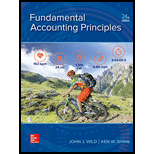
Concept explainers
Concept Introduction:
Organizations today have grown manifold. Companies have grown tremendously, where operating them as a single unit is herculean task. Hence it is advisable to divide an organization into various departments based on the functions they perform for effective management and functioning.
Departmentalization enables division of work and each department shall have a manager responsible for that particular departmental function.
Reason for division of departments in an organization
Explanation of Solution
Following are the advantages of departmentalization:
- There is scope for specialization when a manager is engaged in a particular functional department. He would equip and excel in that functional area.
- When an organization is divided into departments, the administration process becomes easy. Each department can be given an objective or goal. Any deviation from the objective can be easily noticed in various departments.
- Each function is divided between the departments based on their nature. Each department manager will be held responsible for the functioning of their departments.
- The top management can easily communicate with the department heads and effectively convey their goals and take their suggestions in the decision-making process.
Division of departments ensures division of work. Every worker is instilled with the sense of process/job ownership. Also departmentalization promotes cross functioning and communication effective as no single department can work on its own without coordinating with others. Thus it ensures transparency and efficacy.
Thus the reason for division of departments in companies is explained.
Want to see more full solutions like this?
Chapter 24 Solutions
Fundamental Accounting Principles

 AccountingAccountingISBN:9781337272094Author:WARREN, Carl S., Reeve, James M., Duchac, Jonathan E.Publisher:Cengage Learning,
AccountingAccountingISBN:9781337272094Author:WARREN, Carl S., Reeve, James M., Duchac, Jonathan E.Publisher:Cengage Learning, Accounting Information SystemsAccountingISBN:9781337619202Author:Hall, James A.Publisher:Cengage Learning,
Accounting Information SystemsAccountingISBN:9781337619202Author:Hall, James A.Publisher:Cengage Learning, Horngren's Cost Accounting: A Managerial Emphasis...AccountingISBN:9780134475585Author:Srikant M. Datar, Madhav V. RajanPublisher:PEARSON
Horngren's Cost Accounting: A Managerial Emphasis...AccountingISBN:9780134475585Author:Srikant M. Datar, Madhav V. RajanPublisher:PEARSON Intermediate AccountingAccountingISBN:9781259722660Author:J. David Spiceland, Mark W. Nelson, Wayne M ThomasPublisher:McGraw-Hill Education
Intermediate AccountingAccountingISBN:9781259722660Author:J. David Spiceland, Mark W. Nelson, Wayne M ThomasPublisher:McGraw-Hill Education Financial and Managerial AccountingAccountingISBN:9781259726705Author:John J Wild, Ken W. Shaw, Barbara Chiappetta Fundamental Accounting PrinciplesPublisher:McGraw-Hill Education
Financial and Managerial AccountingAccountingISBN:9781259726705Author:John J Wild, Ken W. Shaw, Barbara Chiappetta Fundamental Accounting PrinciplesPublisher:McGraw-Hill Education





